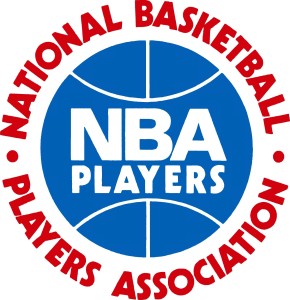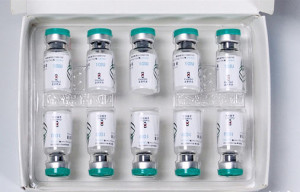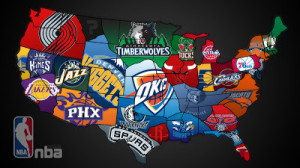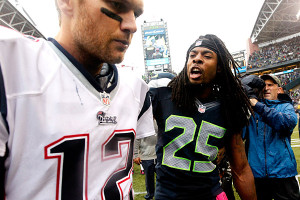Performance Enhancing Drugs (PEDs) are becoming more prevalent in the sports industry, whether it is in international competitions like the Olympics, or in American sports like the football and baseball.
PEDs are most commonly thought of as steroids, but PEDs come in other forms, such as stimulants and sedatives. Human growth hormone (HGH) is a common PED that can help athletes’ recovery or repair of their muscles faster, as well as help them improve energy and build strength. However, HGH was only first banned in Major League Baseball (MLB) at the start of the 2013 season, and the National Football League (NFL) is close on its way to banning the drug as well.
Unlike these two sports, it seems that the NBA is furthest from reaching a deal to implement an agreement to have an HGH testing policy in place.
Is HGH An Issue In The NBA?
NBA commissioner, David Stern was hopeful that the league and the National Basketball Player’s Association would be able to reach in agreement to execute the policy for the start of the 2013-2014 season. A source close to CBSSports.com’s Ken Berger informed the sports writer that, “Nothing is anywhere near being agreed to.”
The NBA has been under heavy attack from critics, claiming that its drug policy is not as significant as it should be. Compared to MLB (unlimited yearly drug testing and a 31 percent of the season suspension for first offenders), and the NFL (unlimited/random yearly drug testing and 25 percent of the season suspension for first offenders), the NBA has a perceived less intense drug policy.
What Makes NBA Testing Different?
The currently policy in place states players can be tested randomly up to six times per year (four times during the season, two times during the off-season). Suspensions for first-time offenders are also less, but not significantly at 24 percent, or 20 games. The NBA also provides a special course of treatment, where players can voluntarily turn themselves in to avoid a harsher punishment, if they abide by certain protocols that the league demands.
There is still little information of whether PEDs play a larger role in basketball than it does in rival sports baseball and football. However, more recently notable NBA players have been suspended for PED use: Rashard Lewis (2009), O.J. Mayo (2011), and Hedo Turkoglu (2013).
How Does HGH Help In The NBA?
HGH and other steroids may not be as effective in the NBA in terms of building mass muscle, but it does assist in a player’s recovery process. A player’s recovery process is important in any sport, as it gives a player more incentive to heal faster in order to participate in more games. This way players can potentially reach certain incentives within his contract or to gain a new contract.
There are suspicions going around as to why the NBPA is reluctant to have an HGH policy implemented for the upcoming season, but there are various reasons why the NBPA (or any player union) would want to take its time before implementing a new policy:
Testing Procedures
What is considered a violation:
The NBPA and NBA want to ensure that each party knows what exactly constitutes a violation. The current standard for informing what constitutes a violation is for the NBA to send a list of all banned substances and provide that list to the NBPA and its players.

An exception that falls under the MLB drug policy is “Therapeutic Use Exception,” which is used when a player is required by a doctor’s medication prescription to
Disciplinary actions:use a prohibited drug. Under this exception, MLB has the ability to grant or deny the exception. The NBPA may be intrigued to lobby for an exception like this under the new HGH policy, since a player may need HGH or a like substance for therapeutic use.
Since there is already an anti-drug policy in place it would be in the best interest for the NBPA to have similar, if not an exact duplicate of, disciplinary actions that are in place with the current policy.
Therefore, first-time offenders would receive a 20 game suspension, second-time offenders would receive a 45 game suspension, and a third-time offender would be banished from the NBA. It is unlikely the NBA would implement a punishment that is more severe than the punishments in place already.
Rehabilitation is always a concern when facing a drug issue, but it is likely the NBA and NBPA will agree to similar rehabilitation measures for the players that fail tests.
Privacy
The NBPA as a player’s union has the obligation to protect its member’s rights, including the right to privacy.
Currently, the NBA only tests players using urine tests. Urine tests have limitations in such that the tests are only capable of detecting certain drugs that are banned by the league. Blood tests, which are needed for HGH testing, are the most expensive method of drug testing, but it is also the most accurate method.
The NBPA may object to blood tests because the tests may prove to be too intrusive for the players. However, if that argument were presented, it would have a negative media impact since other professional athletes have agreed to blood testing. Urine testing can be seen just as intrusive as blood testing, so there should be no hesitation from the NBPA in terms of protecting the players’ privacy rights under the proposed HGH testing policy.
Precedence
Establish future leverage:
One of the main elements of negotiating is leverage. The party that has the most leverage can demand more from the party that does not have as much leverage.
In the last collective bargaining agreement (CBA) with the league and the player’s union, it is perceived that the NBA owners won the overall negotiation. This is especially since the players received less basketball related income than the previous CBA. Rushing into an agreement such as the one currently on the table may provide more leverage to the NBA.
Although another labor agreement will not be on the table until 2017, the NBPA cannot afford to lose more leverage, even if it is on an extension of the drug policy. Taking the time to properly negotiate now will help negotiations in the future.
Impact of Player Unions:
Professional sports leagues are not the same as the Olympics. In the Olympics, organizations like the United States Anti-Doping Agency and the World Anti-Doping Agency govern the drug testing standards to which athletes have to abide.
However, in professional leagues, the league and unions establish the testing standards to which the athletes have to abide. Nevertheless, player union athletes have more of an impact than Olympic athletes to determine which drug testing standards the players have to oblige by.
Credibility
In the current sporting world, it is prevalent that performance enhancing drugs play a larger role now than ever before in history. Major athletes across all sports have been suspended for the use of PEDs or other banned substances.
Although most of these suspensions have been warranted, there is still the question of defective testing, which can lead to false positives or procedural errors. Players mostly worry about a corrupt drug testing system that could cause them an unwarranted suspension.
The NBA has yet to have troubles with the credibility of its drug testing system like the NFL has had lately (e.g, Richard Sherman and Von Miller). However, the implementation of HGH testing could prove that more NBA players are taking the drug since it is untraceable under the current drug testing policy. Athletes want to deter other athletes from using prohibited drugs just as much as the leagues do, but only if the testing is done under a credible test.
All in all, although the NBA and the NBPA are unlikely to reach an agreement on HGH testing for the upcoming season, using due diligence on both sides is appropriate at this stage. Other leagues have also used just as much, if not more time to properly implement HGH testing in its respective leagues.






Today, I went to the beach front with my kids. I found a sea shell and
gave it to my 4 year old daughter and said “You can hear the ocean if you put this to your ear.” She placed the shell to her ear and screamed.
There was a hermit crab inside and it pinched her ear.
She never wants to go back! LoL I know this is entirely off topic but I
had to tell someone!